La Boule d‘Or is an abandoned hotel from the small town of Clamecy, in central France, that has been given a new life by four friends motivated to create an artists’ residency. Their recent movement is drawing people in search of community and human connection from all over the world.
BELLA IRELAND & MARA MARIS
The Old Chapel of Bethlehem
La Boule d’Or is comprised of an old chapel with an integrated Auberge, French style housing in the countryside, serving as temporary accommodations and kitchen for volunteers. Adjacent to the chapel is a nearly completed hotel; beside this sits a bar, dining area, outdoor fire pit, and a stage.
Layout of La Boule d’Or. Interactive infographic: Mara Maris.
The Chapel, historically known as The Old Chapel of Bethlehem was built in the 12th century. Julie Blachère, communications manager for the local council, explains how the chapel previously served as a hospital, providing shelter for others in the past.
“The chapel has always been a refuge for all,” Blachère says.
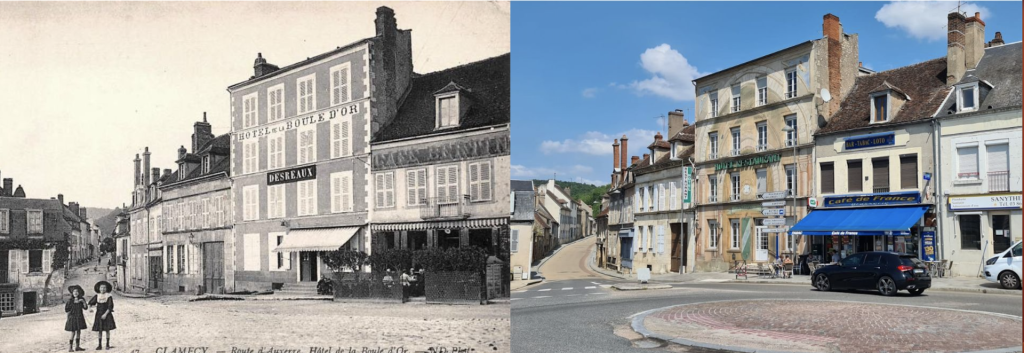
In the 18th century the property became a restaurant, and the hotel nearby was built. However, the establishment faced challenges, and near its closure gained negatived reviews.
In 2017, a customer described the restaurant as an “incredible disappointment with slow service and terrible food”
While in 2015, the hotel was deemed the “worst hotel in France” by an unhappy guest.
Eventually, the hotel was slowly closed floor-by-floor due to health and safety concerns, and soon, the property was entirely closed and listed for sale. In 2021, the chapel was bought by its new and current owners.
Starting their journey
The owners of La Boule d’Or — James Turner, Boris Levy, Nicolas Delaroche, and Adrien Lachapelle — are a group of creatives with diverse backgrounds in music and art. Turner is an American musician who performs under the name Hēran Soun. Levy is a French cinematographer, Delaroche is a Swiss photographer, and Lachapelle is a French photographer and videographer. Levy connected them all as a mutual friend and acted as a catalyst for the unique project.
Levy became initially inspired for his vision during his visits to other collective living spaces, where he experienced a sense of freedom and a strong connection with a community that they enabled.
“I had a seed in mind seven years ago. I went to visit a friend in the south of France where everyone was living outdoors in the forest, free, happy, and useful in the community. I met many people from this experience we still have a strong connection even though we are not seeing each other daily. It stays forever,” Levy explains.
In creating La Boule d’Or, he wanted to replicate this sense of community and foster timeless friendships through creating an artist residency where individuals can stay and work alongside each other.
As he put it, “The intention was to find a place that can host a lot of people, have a workspace, studios, workshops, offices, and where we could continue our professional activity.”
In addition to this, the pandemic acted as a motive in initiating the creation of this collective space. After the effects of the lockdown, Levy explains he “should have done it two years ago, so we could have a shelter together, and not be kept in our apartments.”
Levy created a WhatsApp group and started looking at properties in France in late 2021. An ocean away, Turner was scouting some in the U.S.
They weren’t sure of the location or the type of place they preferred; they only knew they needed to be away from the city. Turner felt they didn’t see much value or necessity to be there.
“It didn’t resonate with us anymore,” he says.
Levy also expresses his perspective opposing modern-day friendships.
“In a city the time we take to meet each other is having a coffee, having a beer, having fun for a night and then after everybody goes back home, it’s like I see my friends with appointments” he shares.
With many big ideas in mind, they needed a place that could fit them all.
Levy’s discovery of the chapel and hotel package on Leboncoin provided an opportunity for the group to execute their vision.
Funding a Place to Live, not to Profit
As like many property owners, a loan to make the purchase was necessary for the group. In addition to this, four people from different nationalities and with different revenues didn’t make for ideal loan candidates. The group had to get the help of a guarantor with signing the paperwork and purchasing the building.
Funding the project itself was the next step. As Turner describes it, from the beginning his biggest concern was how to make it realistically sustainable for their lifestyle.
“None of us have money or come from families with large trust funds. So, it was always, ‘how do we create that and make it self-sustaining, and actually earn some money to reinvest into it’,” says Turner.
Completing the renovation of the hotel and generating revenue from this is essential for funding their artistic residency and sustaining the project, especially when financial gain is never a motivation for the group.
“The goal was never to make money out of it,” says Levy.
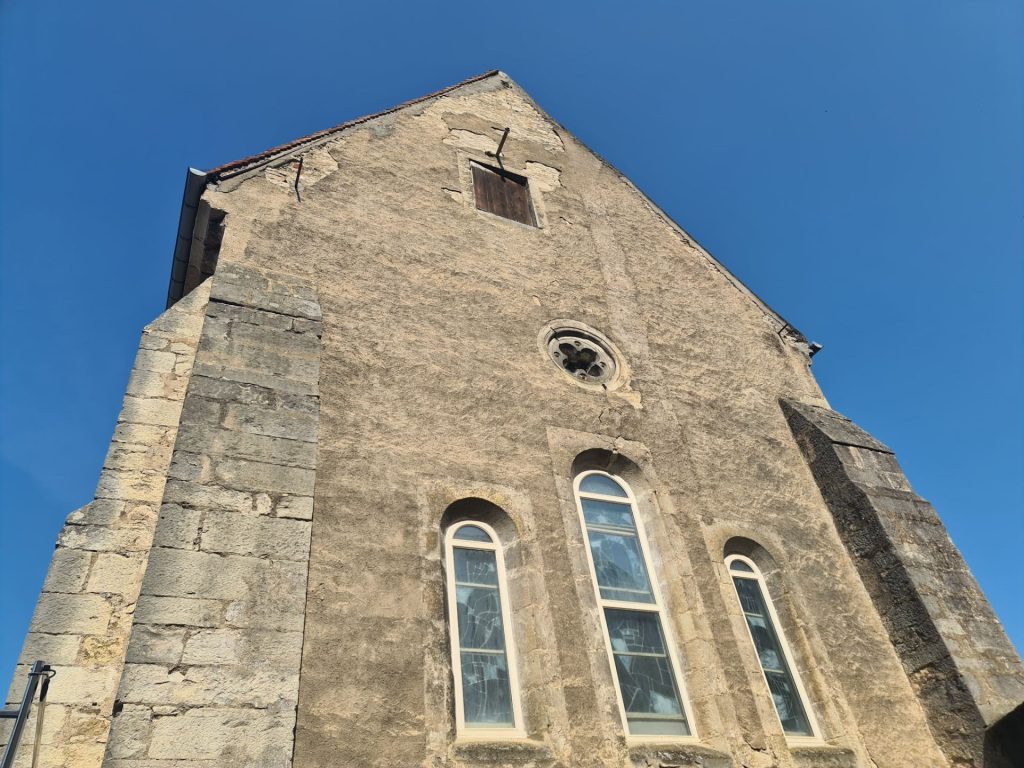

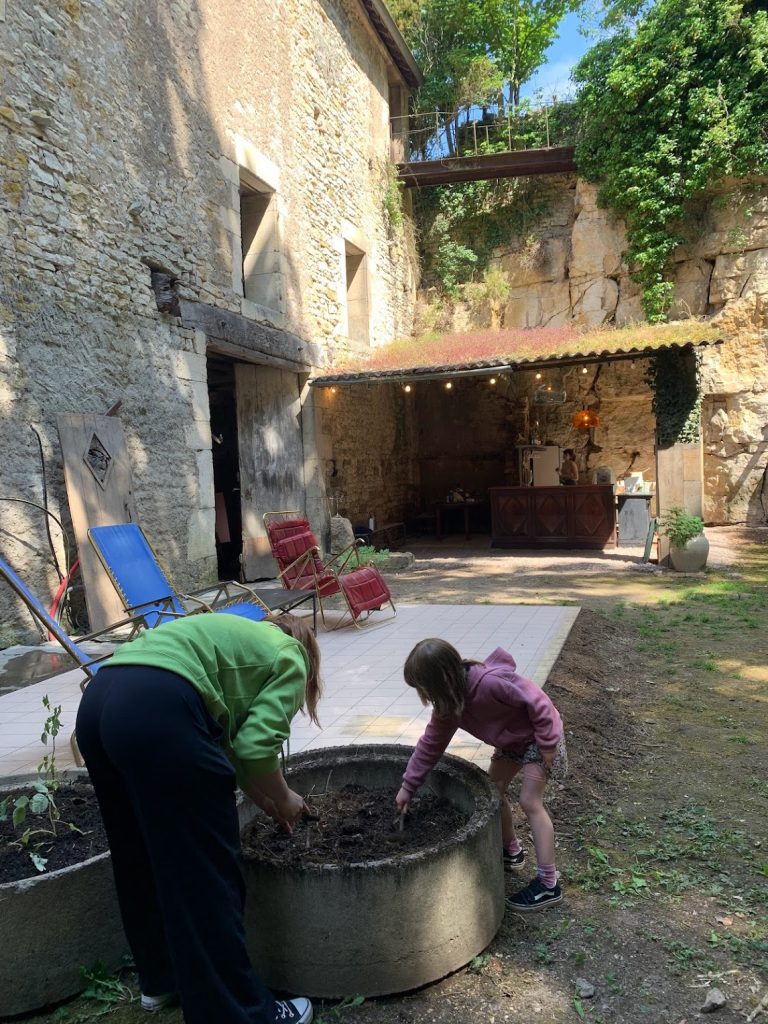
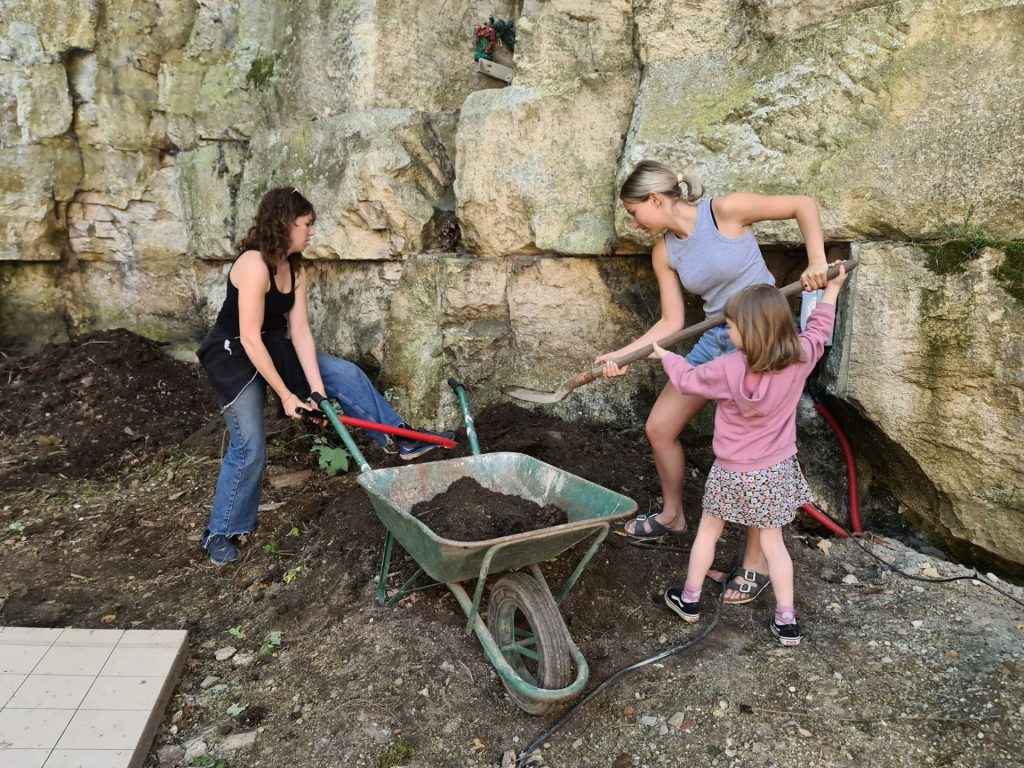
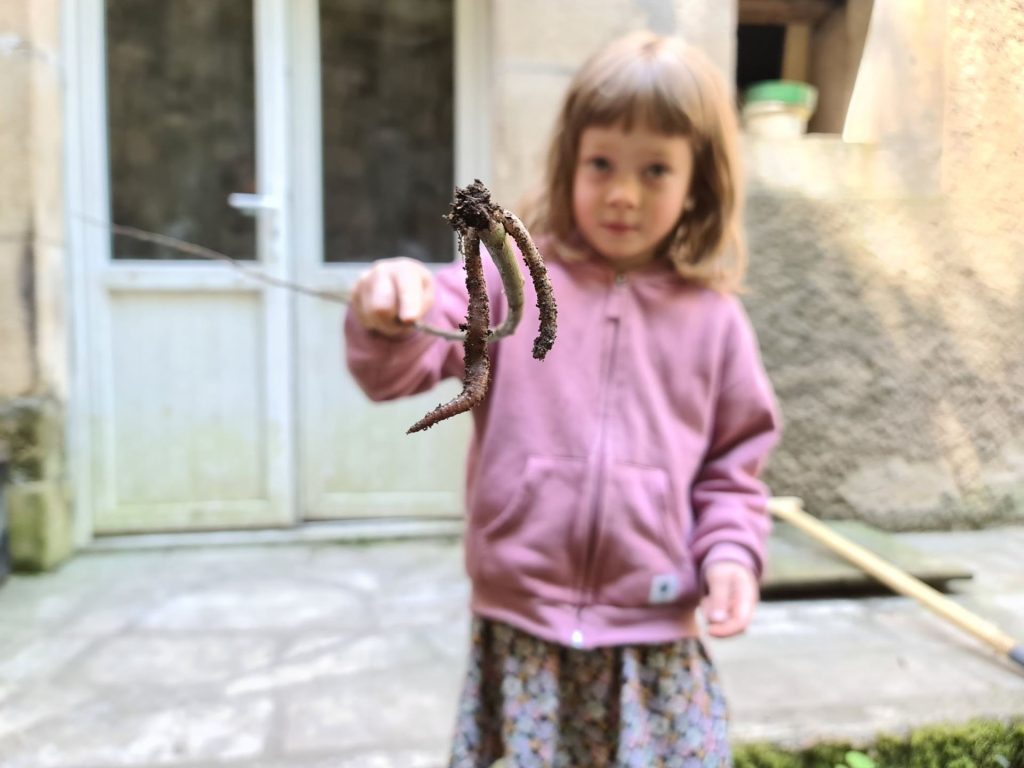
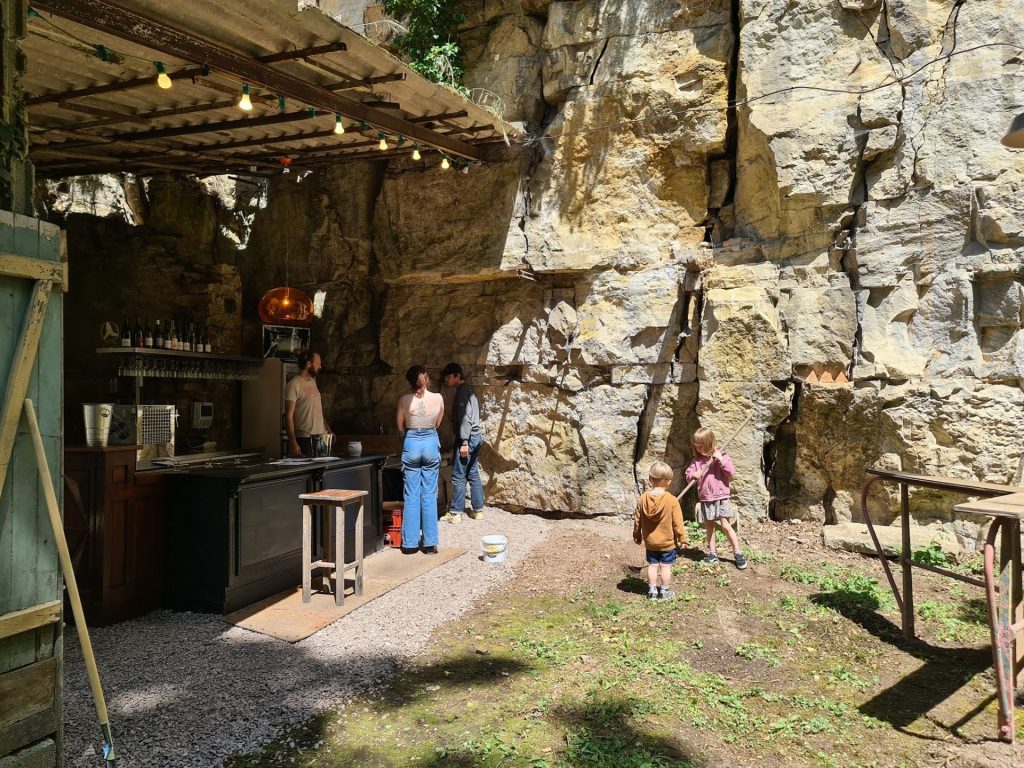
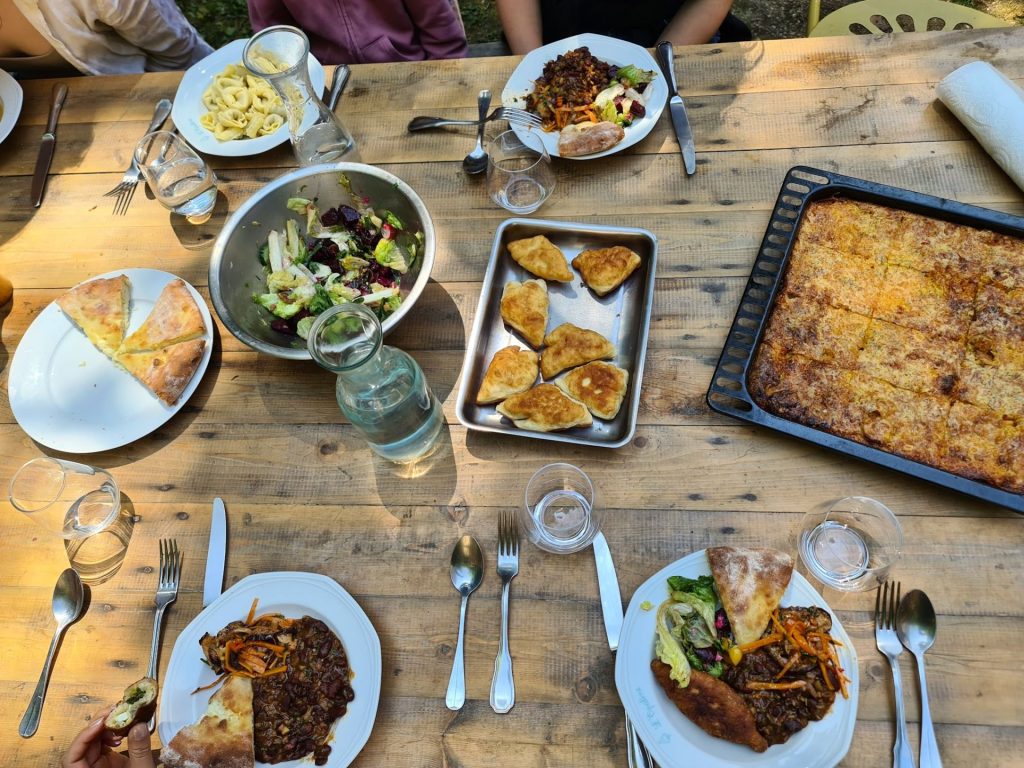
TikTok to the Rescue
Renovations began in early 2022, with just the four owners and some of Levy and Delaroche’s friends from Paris coming on the weekends to help. With most of his connections in the U.S., Turner had to find an alternate way to contribute. Finding individuals to help with the project was urgent. Pressured to find a quick solution, he came up with an unconventional idea: using TikTok.
“And so, I turned to the only place where I thought people might be interested in this,” Turner explains.
He got his broken old phone, filmed some bits, recorded a voice over in the car as his make-shift studio, and uploaded it to TikTok. Soon after, they got to witness the actual significance of what they were building.
“I was just talking into the phone saying, ‘We need help.’ And it just exploded,” Turner describes.
However, Turner acknowledges that he was naive at first, responding by himself to people’s comments, making the hotel’s address public on social media and inviting anyone to help, without any kind of verification. Leading to many offers from volunteers, but also many never showing up, and creating a risk of their address being public for all. The rest of the group was apprehensive about his experiment at the beginning, thinking TikTok was only for funny dances.
But as the TikTok grew, the volunteers began to actually show-up, and now approximately 100 volunteers have been and gone to the site.
“Now they (the rest of the group) see the power of it to reach people and introduce our project in the way that we want to, and they’ve seen the positivity which stems from it (using TikTok),” explains Turner.
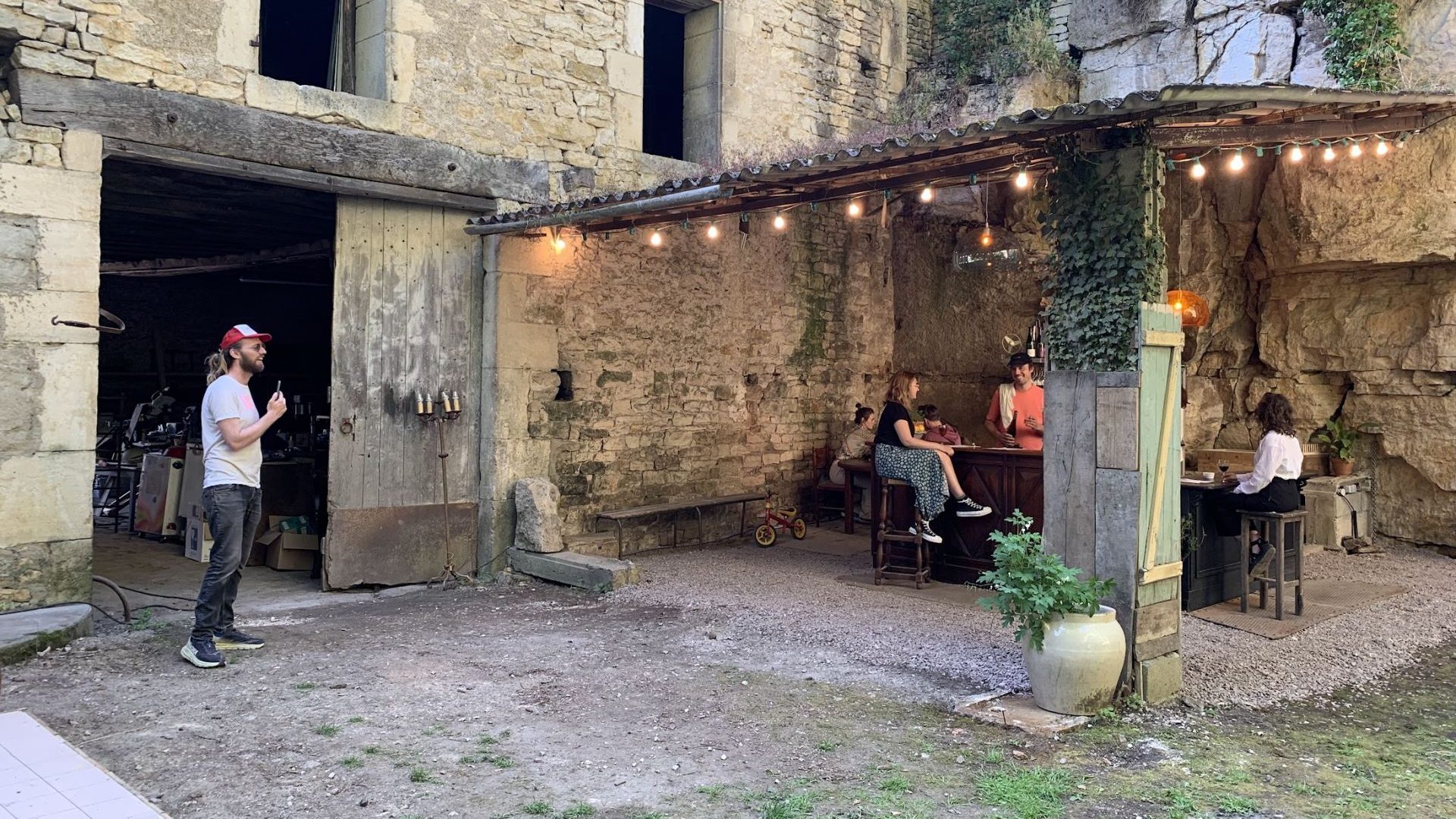
Unconventional for social media outreach, one of their biggest surprises was the positivity that their project received from outsiders. As Turner describes it, 99.9% of interactions with the videos have been constructive. Going from the most views on a video being 300 to having videos with 4 million views has shown Turner and the crew the reason why they needed to reach out to people in this manner.
“It’s still just absolutely overwhelming. We thought we would have to open the business before we could start building a community. We had no idea that we would actually build the best and biggest community years before we could even open. That’s been this surprise to this whole project,” Turner reveals.
From the involvement of volunteers in the project, the owners of La Boule d’Or have already been able to see their ‘utopia’ in action. Thus, the property has already become a space that fosters the forming of lasting friendships, new connections, and meaningful collaborations between artists.
Voices of Volunteers
Listen to three volunteers’ experiences on-site, and their thoughts about giving free labour in exchange for community.
Safety on Site
Safety is one of the elements the founders put a lot of emphasis on, especially when working with volunteers. Working clothes, gloves and safety goggles are always provided for them.
“It’s just basic stuff. If someone’s going to be working on a project, we have a little talk for it first and just ask people if they’re comfortable,” Turner explains.
Even though most of the renovations are DIY (do-it-yourself) projects, Levy adds that dangerous tasks are taken care of by professionals.
“Things like electricity, I don’t give that to anyone, only someone who has experience in this job,” says Levy.
In addition to physical safety, volunteers have also described the group’s efforts in making mental health also a priority.
“They’re always careful that everyone is safe and comfortable with what they’re doing. If at any time someone is tired or scared, they always hear what you need and what you have to say,” says Aela Corthay, a local volunteer.
Sustainability
The owners also put their basis into a less environmentally impactful system. With this in foresight, the group uses their creative minds to find alternatives to buying new.
“We already have so many materials produced on earth, there is no reason to buy new things,” as Levy puts it.
However, this slows down the process. They often must come up with projects around a certain object, instead of finding materials for an already existing one.
One of their proudest examples of this is their use of the stage built in the backyard.
“I think it used to be a stage for a catwalk. It was made of wood, and since we are not building it from scratch, we had to think about how to assemble things together,” explains Levy.
Beliefs and personal values are also a big reason for wanting to go the sustainable route. They all believe that reusing materials is not only about saving the planet, but also about the story each object has. That also goes for the buildings themselves.
As Turner puts it, “Everything here has a story.”
A large source for their decorations and small furniture items is a local second-hand store, called La Ressourcerie. With frequent visits several times a week, they have developed a good relationship with the owners of the store, and therefore have been able to achieve their sustainable goals at a fair price.
Levy emphasizes this by talking about the pressure making something from scratch holds over him.
“If you start with a very precise plan, you buy material in the shop and do everything right there is an expectation of perfection. But if you do it with what you have, it’s more creative. We face issues and odd shapes, we have to work with that. It’s more time spent on creativity,” Levy explains.
Local Community Building
Despite being operated by a group of individuals who have no original connection to the town of Clamecy and constantly have a flow of other outsider volunteers, the owners prioritise engaging with the local community and establishing relationships with their businesses.
“It was very important to me that this place has to fit in the local community and be at this interdependency. We provide something useful for the community and we depend on the community to live also… Voilà!” Levy says.
An example is the fact that they purchase their vegetables from a local farm. Levy also explains that the owner of the farm has connections with the local bank.
“She is part of a consultants for grants of projects, and we submitted our project to get the business loan from them and she supports the project, so it makes sense she helps (us), we help her,” he says.
Other examples of these relationships include the selection of wines in the La Boule d’Or bar. Wheelock, the intern at the bar explains their processes in this as she says,
“We wanted a more personal relationships with all of the winemakers, so we would take trips going out to different producers, that way we knew who we were working with. We’re really priding ourselves on our selection and choosing local wines.”
Statistics have shown that the population in Clamecy has nearly halved in the past 50 years, therefore leading to a decrease in the local economy and trade. Now, the town is heavily reliant on tourism; thus, the soon-to-be-completed hotel will also help to accommodate travellers.
Turner explains how the local mayor is active in supporting their vision, “he’s said to us they’re short on hotel rooms; they really want more tourists and more people to come through,” he says.
By connecting with the local community, La Boule d’Or has been able to help combat these issues.
Fostering Human Connection
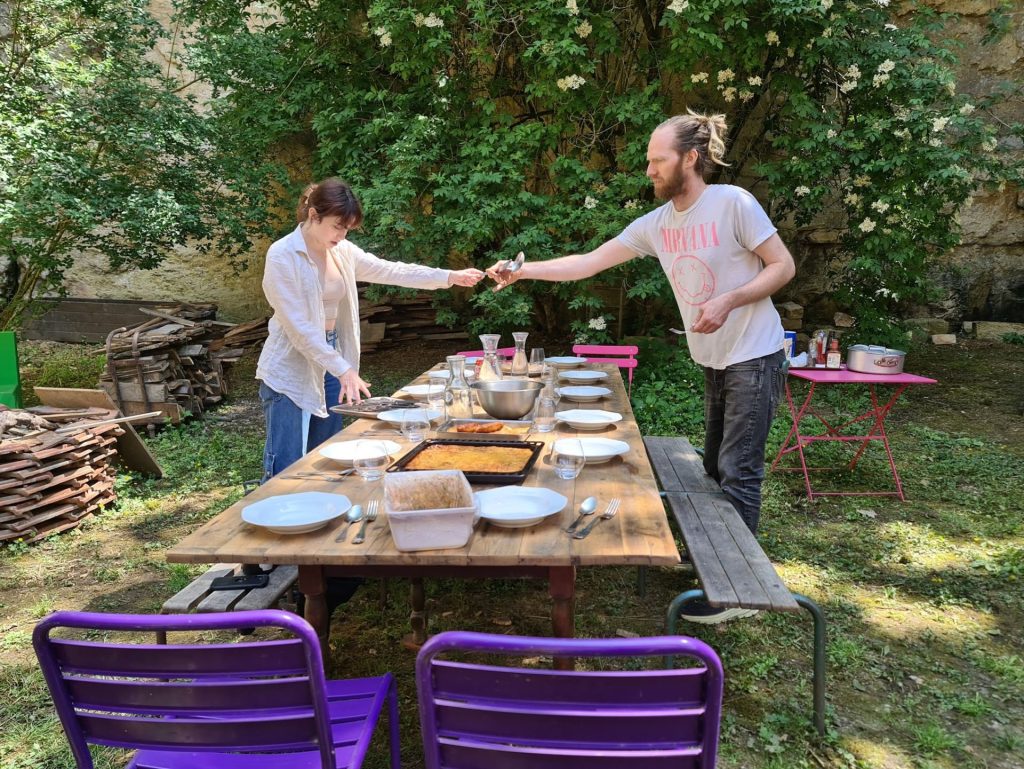
Along with achieving personal goals of creating a self-sustaining artist residency by working to help the community and the environment, they have managed to create something bigger than that.
According to the World Happiness Report, there are links to being part of a service and to a happiness increase. As humans, feeling embraced by a community benefits one’s mental and emotional health.
Turner also shared instances of individuals who, prior to visiting, were burdened by deep mental health struggles. They opened up to him about how the project helped them change their outlook on life, and therefore had an extremely positive effect on their mental health.
As Turner puts it, “There’s a certain value which comes with this, which could never have monetary value put on it.”
He adds, “For living in a tiny village but getting to meet people from New Zealand and Romania, from all over the world. I live in a small French town, but I get to experience the world from here.”

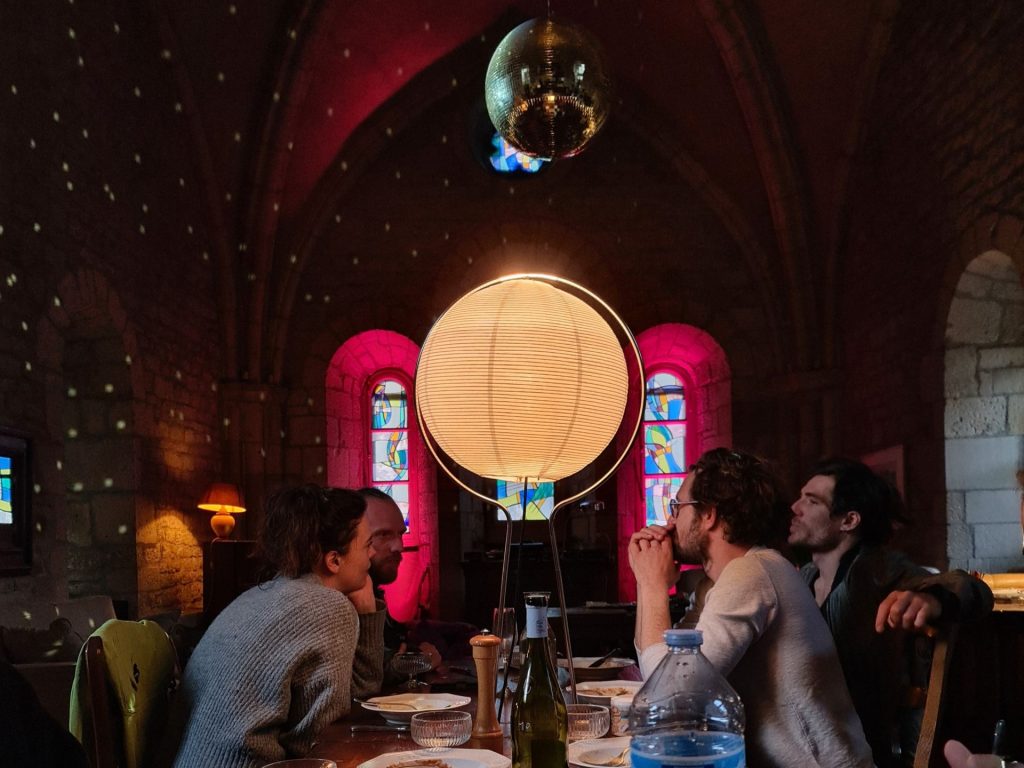
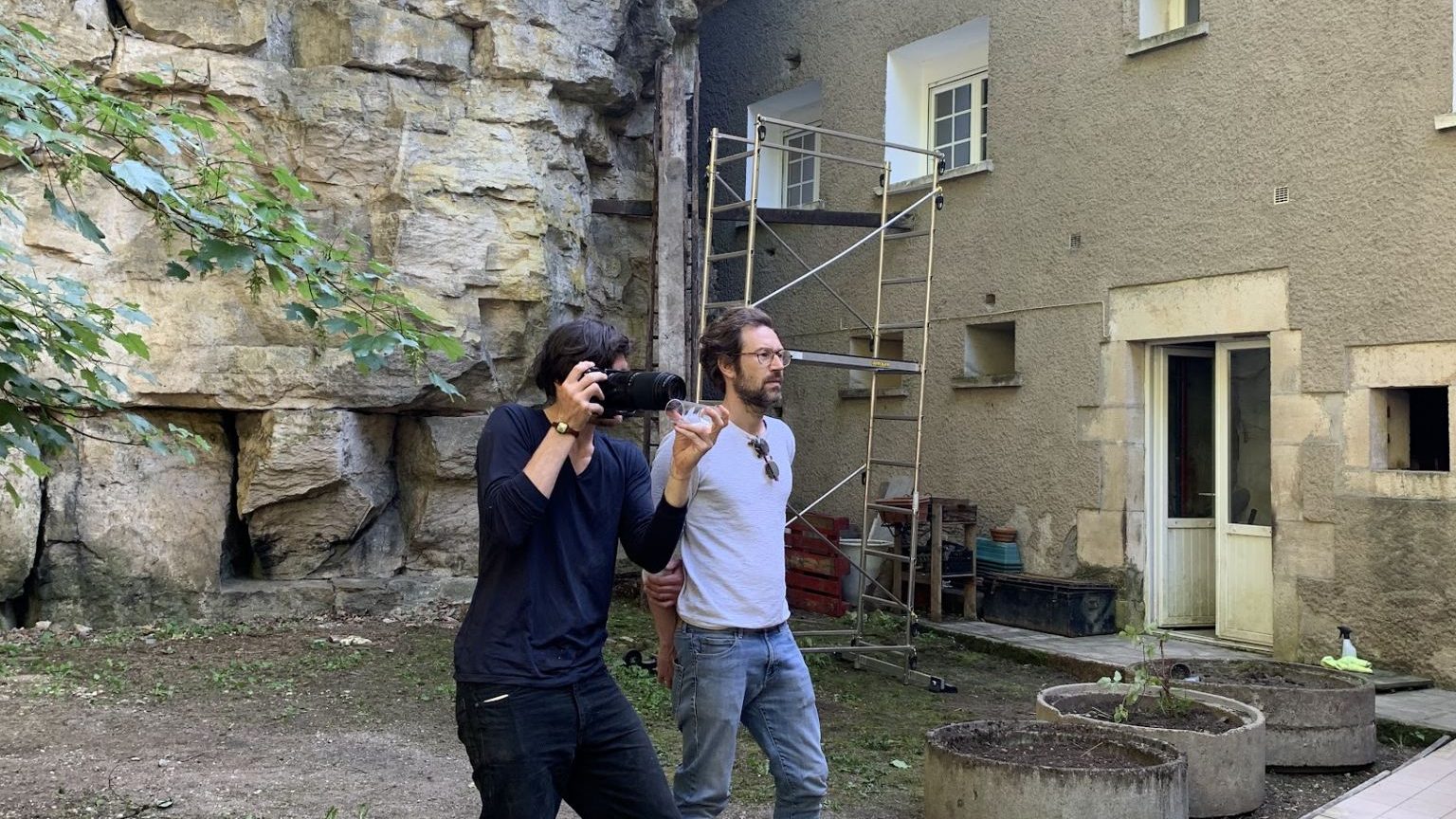
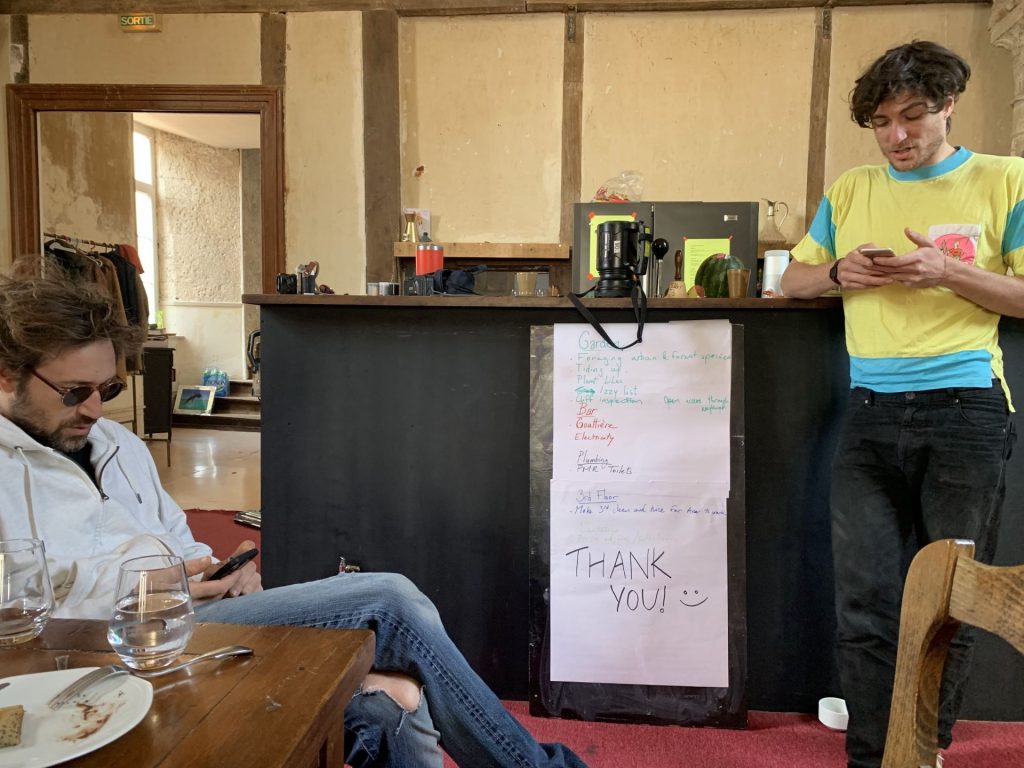
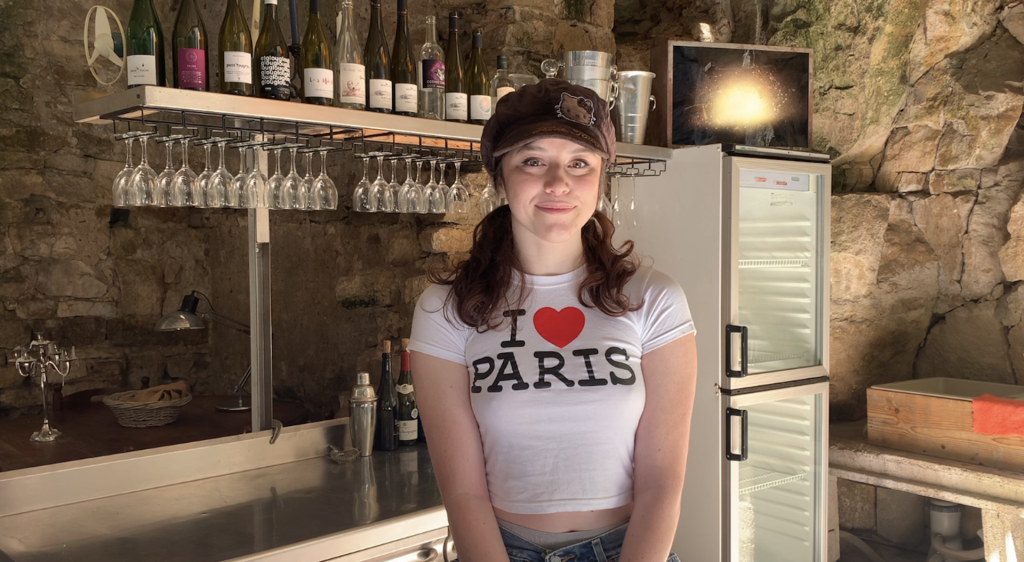
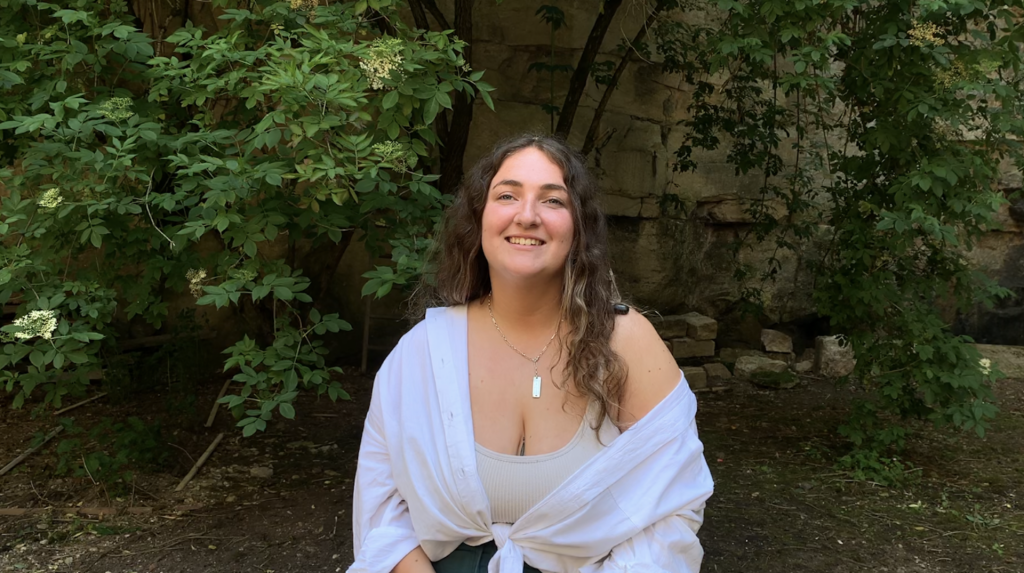
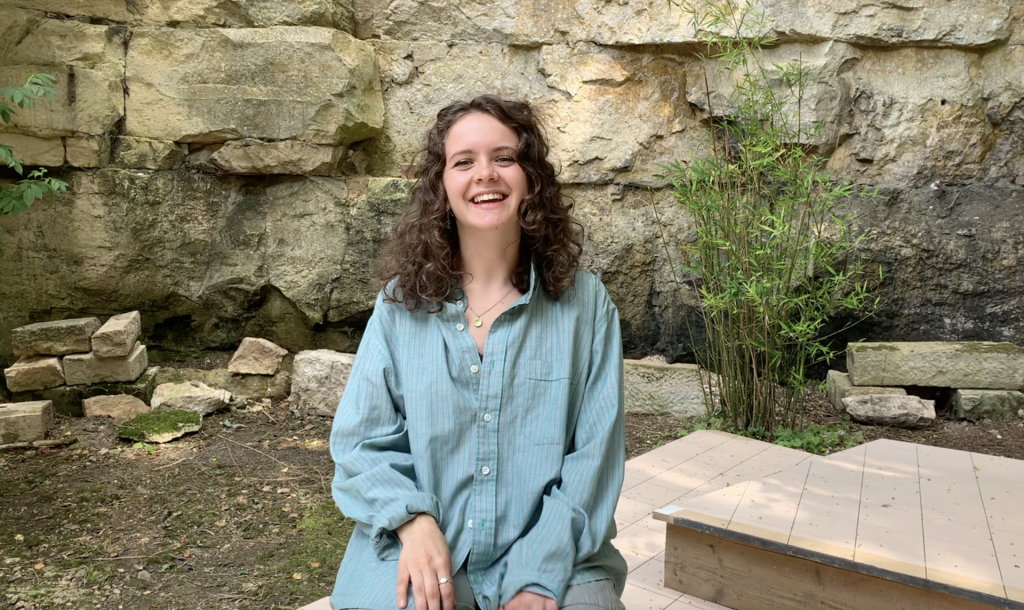
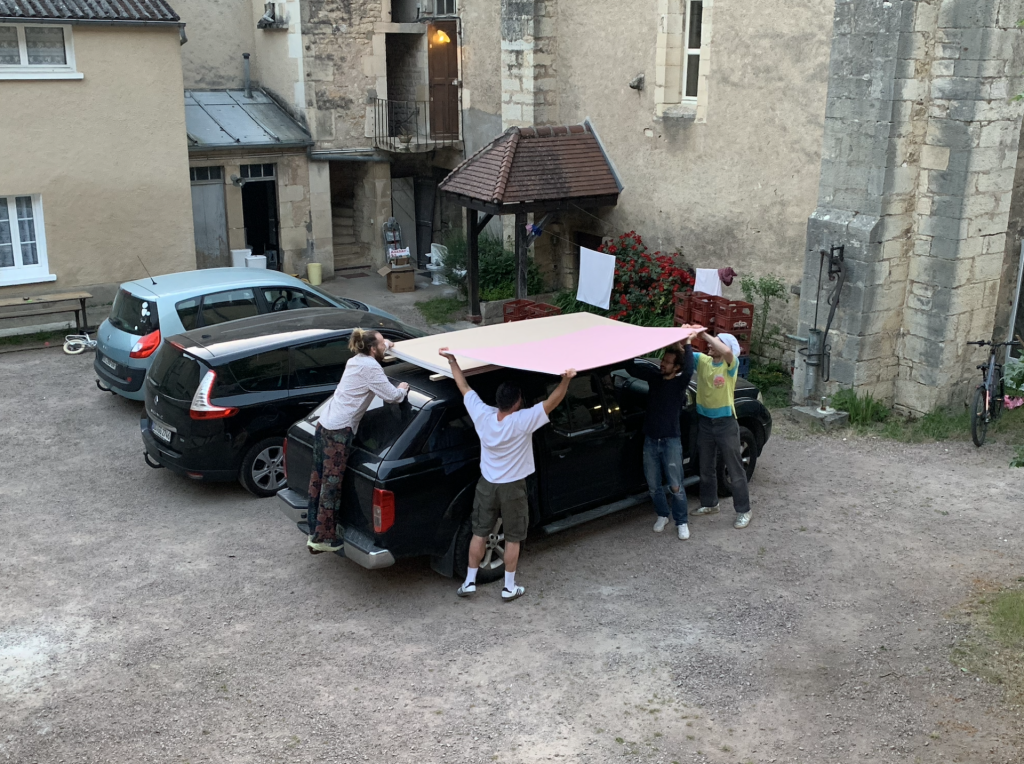
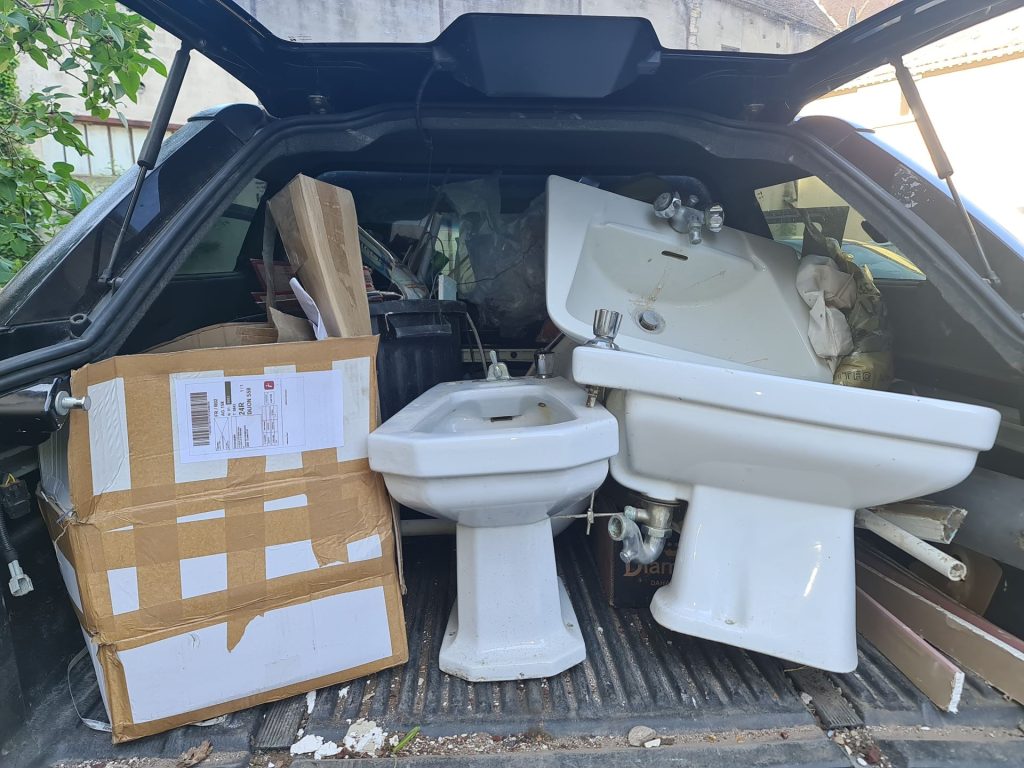
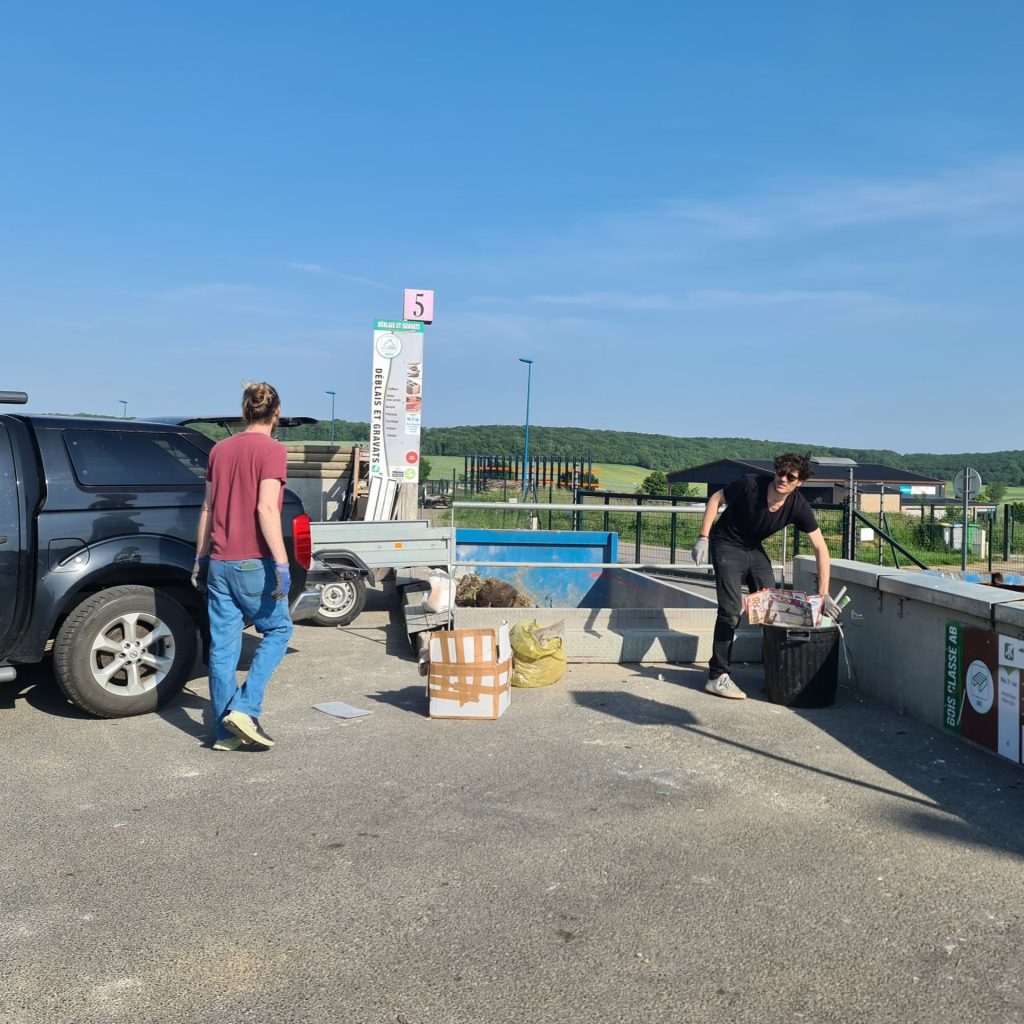
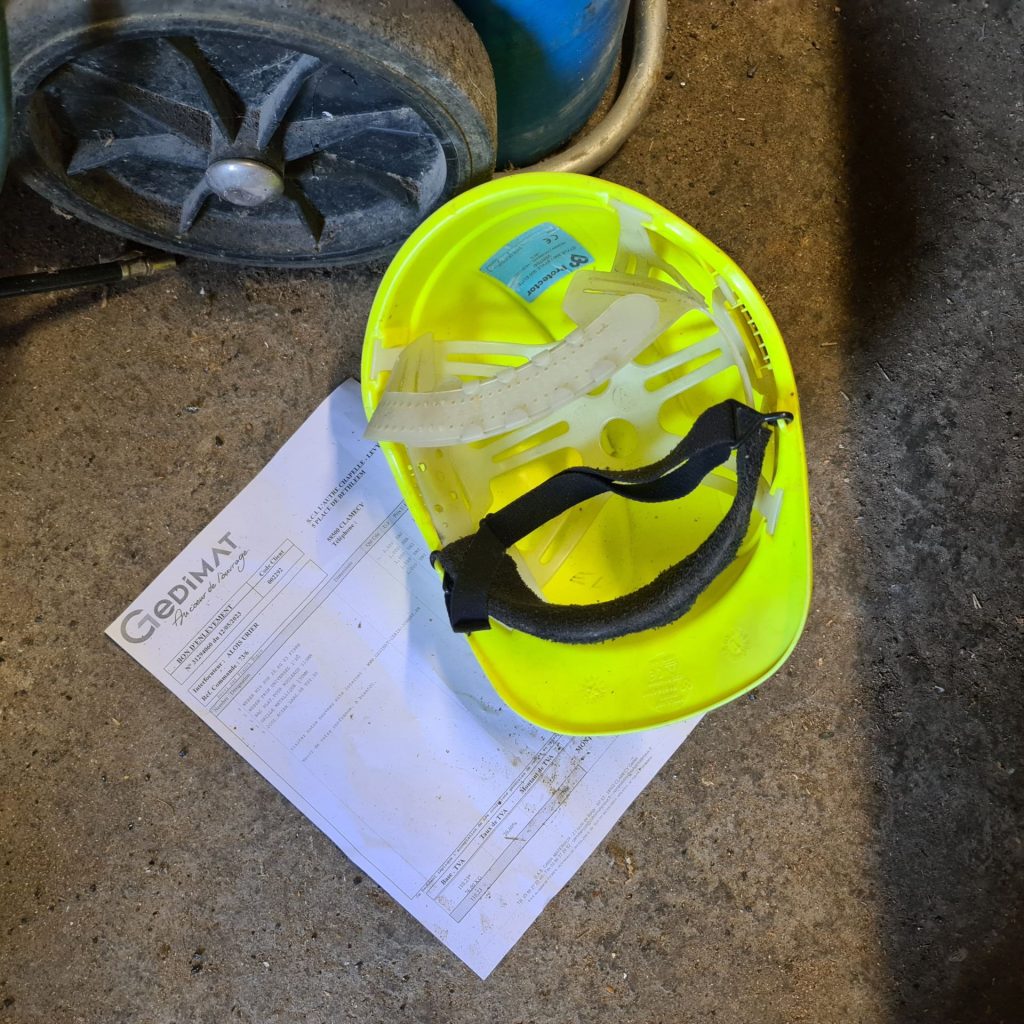
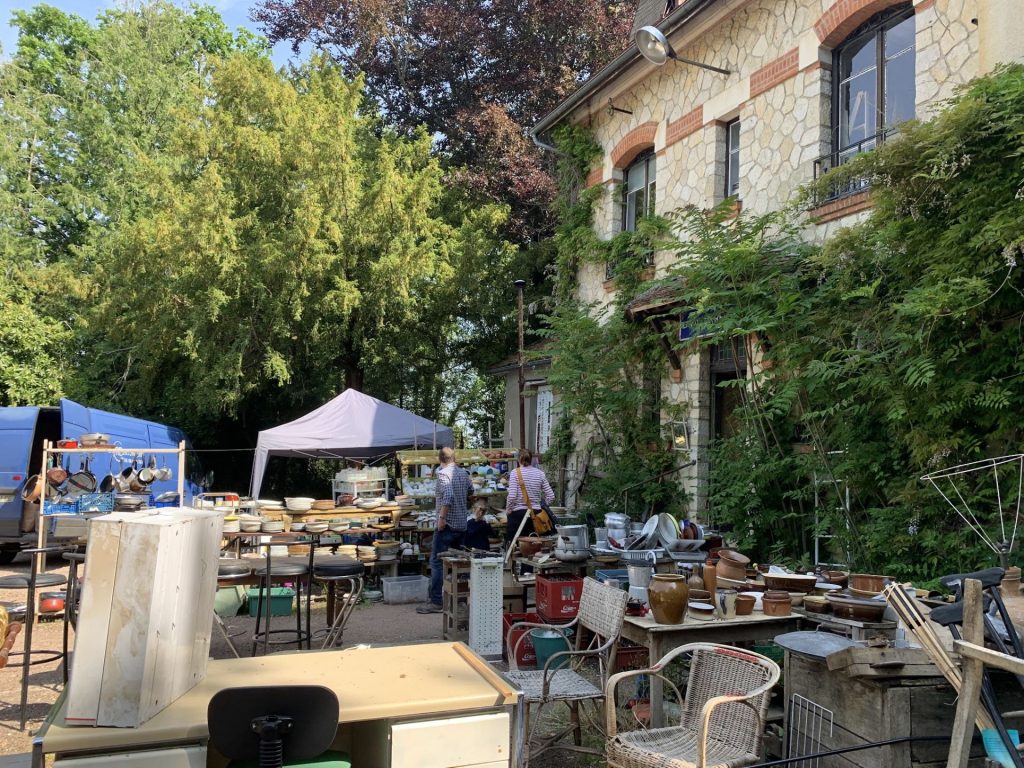


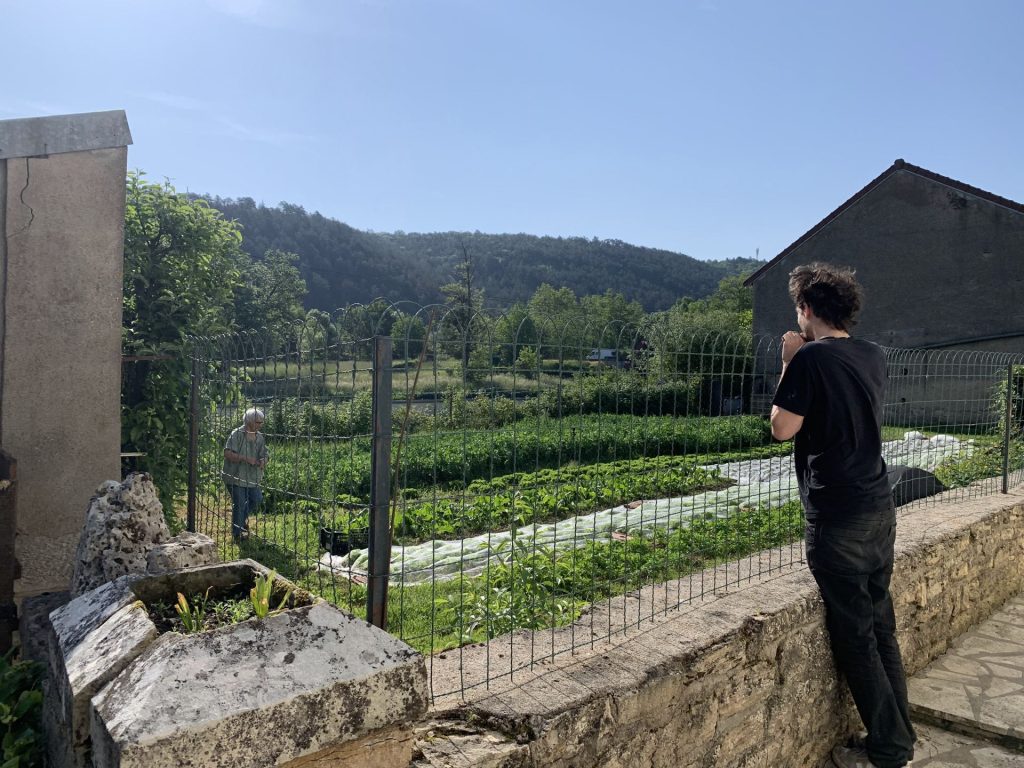
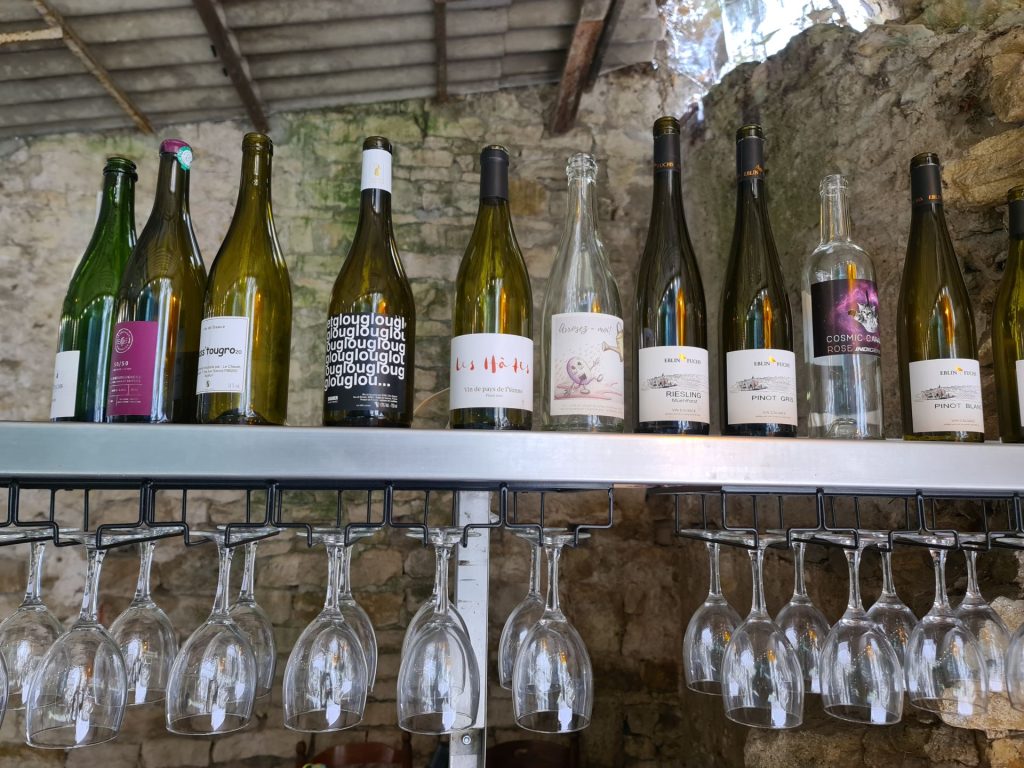
Wow – I have just read this in it’s entirety and loved it – imagine doing this using Tik Tok – just crazy – the journey looks amazing and I hope the outcome is successful – great read!